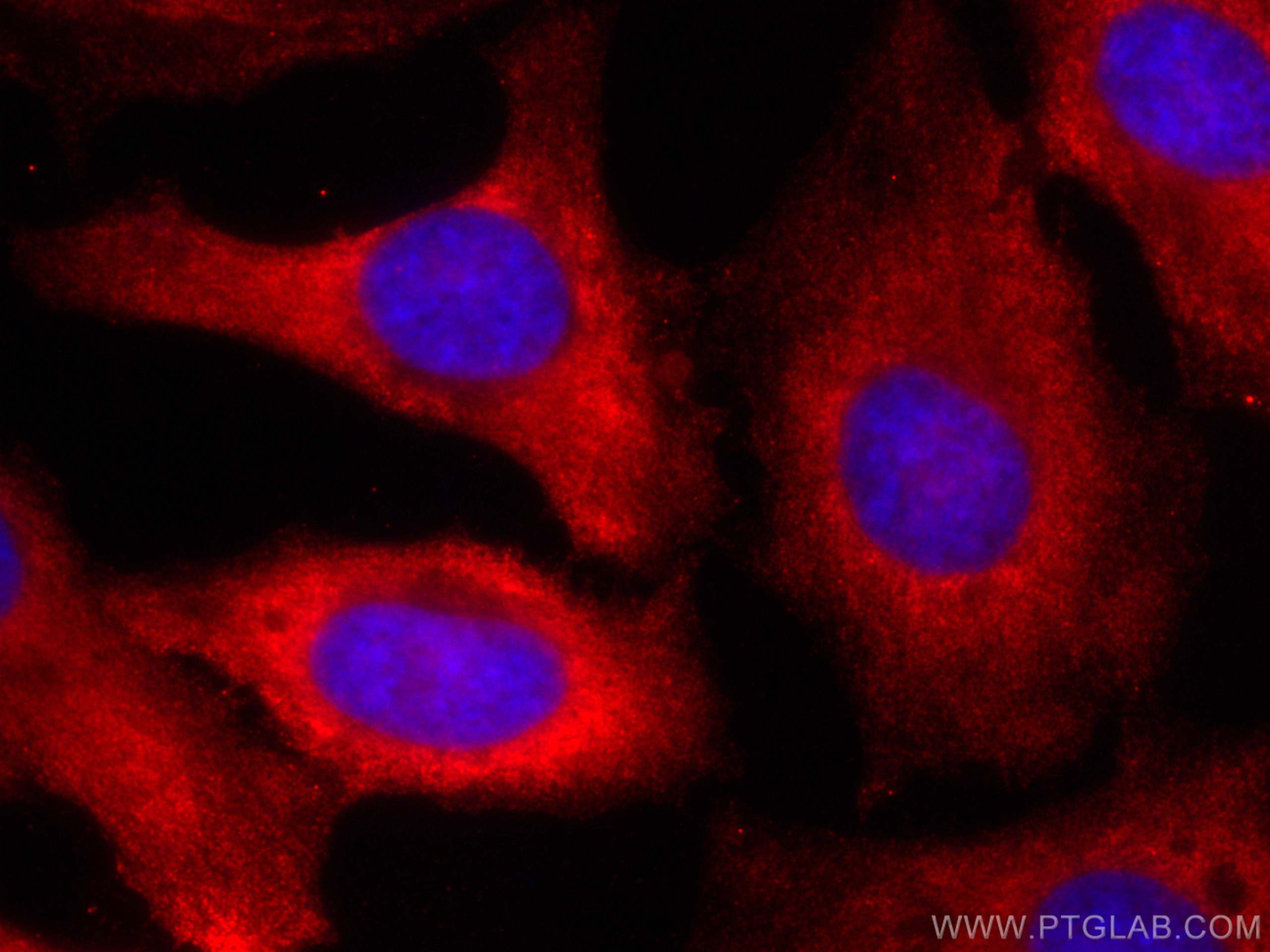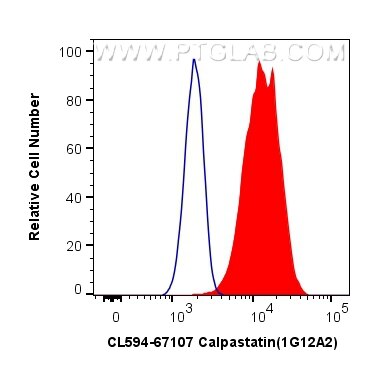Tested Applications
| Positive IF/ICC detected in | HeLa cells |
| Positive FC (Intra) detected in | HeLa cells |
| Positive FC detected in | HeLa cells |
Recommended dilution
| Application | Dilution |
|---|---|
| Immunofluorescence (IF)/ICC | IF/ICC : 1:50-1:500 |
| Flow Cytometry (FC) (INTRA) | FC (INTRA) : 0.40 ug per 10^6 cells in a 100 µl suspension |
| Flow Cytometry (FC) | FC : 0.40 ug per 10^6 cells in a 100 µl suspension |
| It is recommended that this reagent should be titrated in each testing system to obtain optimal results. | |
| Sample-dependent, Check data in validation data gallery. | |
Product Information
CL594-67107 targets Calpastatin in IF/ICC, FC (Intra) applications and shows reactivity with Human samples.
| Tested Reactivity | Human |
| Host / Isotype | Mouse / IgG1 |
| Class | Monoclonal |
| Type | Antibody |
| Immunogen | Calpastatin fusion protein Ag28669 Predict reactive species |
| Full Name | calpastatin |
| Calculated Molecular Weight | 667 aa, 72 kDa |
| Observed Molecular Weight | 115 kDa |
| GenBank Accession Number | BC013579 |
| Gene Symbol | Calpastatin |
| Gene ID (NCBI) | 831 |
| RRID | AB_3084747 |
| Conjugate | CoraLite®594 Fluorescent Dye |
| Excitation/Emission Maxima Wavelengths | 588 nm / 604 nm |
| Form | Liquid |
| Purification Method | Protein G purification |
| UNIPROT ID | P20810 |
| Storage Buffer | PBS with 50% Glycerol, 0.05% Proclin300, 0.5% BSA, pH 7.3. |
| Storage Conditions | Store at -20°C. Avoid exposure to light. Stable for one year after shipment. Aliquoting is unnecessary for -20oC storage. |
Protocols
| Product Specific Protocols | |
|---|---|
| IF protocol for CL594 Calpastatin antibody CL594-67107 | Download protocol |
| FC protocol for CL594 Calpastatin antibody CL594-67107 | Download protocol |
| Standard Protocols | |
|---|---|
| Click here to view our Standard Protocols |





